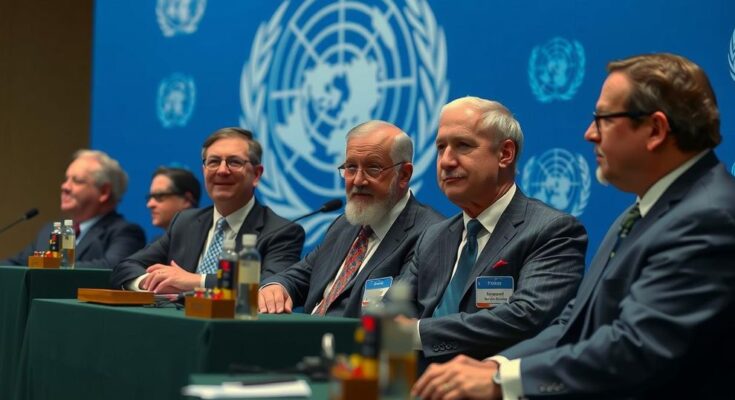At least 1,773 fossil fuel lobbyists are attending the U.N. climate negotiations in Baku, far outnumbering delegates from nearly all countries except Turkey, Brazil, and Azerbaijan. This poses concerns about their influence on climate policy, with experts highlighting that vulnerable nations sent only 1,033 delegates between them. Kathy Mulvey of the Union of Concerned Scientists stressed the untrustworthiness of companies like ExxonMobil in these discussions.
Recent reports indicate that a substantial number of fossil fuel lobbyists, totaling at least 1,773, are participating in the ongoing U.N. climate negotiations in Baku, Azerbaijan. This alarming figure has been compiled by a coalition of climate advocacy organizations. Kathy Mulvey, a campaigner with the Union of Concerned Scientists, expressed critical concern over this development, suggesting that permitting fossil fuel representatives to influence climate policy is akin to unleashing a predator among its prey. Each participant in the conference is required to declare their affiliated organization and their role within it. Climate advocacy groups meticulously analyzed the provisional attendee list, identifying individuals who appear to represent fossil fuel interests. These lobbyists outnumber representatives from virtually every nation except Turkey, Brazil, and the host country, Azerbaijan. Notably, the number of fossil fuel lobbyists—1,773—far exceeds the representation from nations deemed most susceptible to climate change impacts, as highlighted by experts from Notre Dame University. In stark contrast, the ten nations facing the highest vulnerability collectively sent only 1,033 delegates. Particularly concerning is that ExxonMobil dispatched an equal number of delegates to the negotiations as Guyana, a nation facing imminent threats from rising sea levels. Kathy Mulvey articulated the profound distrust toward corporations like ExxonMobil, which have historically engaged in misleading campaigns against climate action. She remarked that such entities cannot be considered trustworthy participants in the formation of climate policy.
The presence of fossil fuel lobbyists at international climate negotiations has raised significant alarm among environmental groups. The U.N. climate negotiations are critical forums where countries negotiate strategies to mitigate climate change. When representatives from fossil fuel companies exert influence in these discussions, it raises concerns about the integrity of climate policy and the potential prioritization of corporate interests over urgent environmental considerations. The imbalance in representation, with lobbyists outnumbering delegates from vulnerable nations, further underscores the challenges facing global climate efforts.
The disproportionate presence of fossil fuel lobbyists at the U.N. climate negotiations, particularly their overwhelming numbers compared to delegates from at-risk countries, poses a significant threat to the integrity of climate policymaking. With over 1,700 lobbyists attending, it is critical to scrutinize the interests shaping these essential discussions. Advocates for climate action are rightfully apprehensive, emphasizing the need to ensure that negotiations are not unduly influenced by entities that have historically obstructed meaningful climate progress.
Original Source: e360.yale.edu




